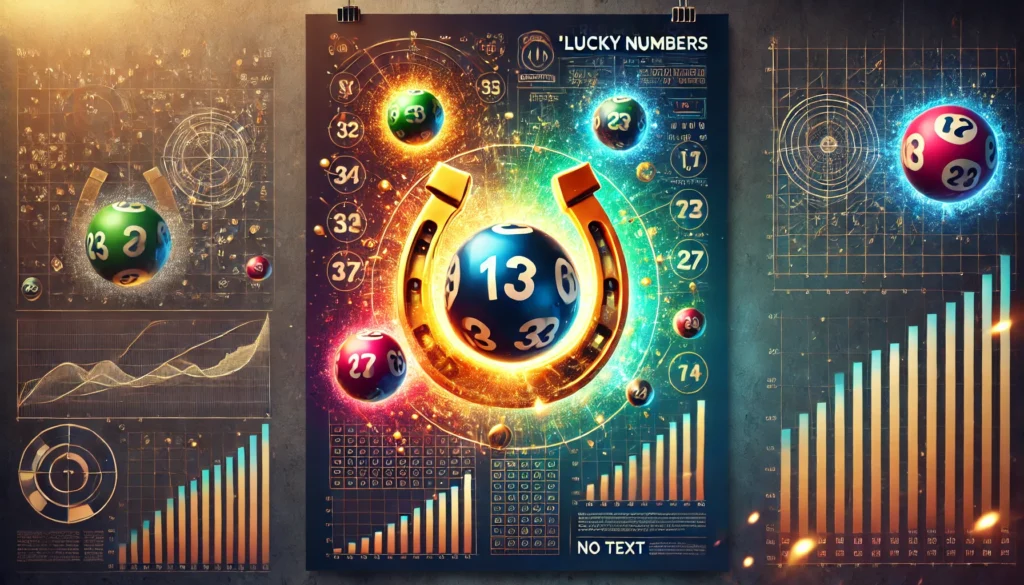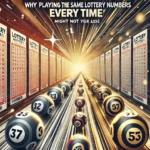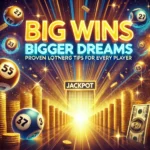Introduction
The idea of “lucky numbers” has been around for centuries, deeply ingrained in various cultures and personal beliefs. Whether it’s choosing your birthday, anniversary, or a number that just feels right, many lottery players swear by their lucky numbers to boost their odds of winning. But do these numbers actually influence the outcome, or is it all just superstition? In this article, we’ll uncover the truth about lucky numbers and how they really impact your chances of winning the lottery or any game of chance.
1. The Psychology Behind Lucky Numbers
Why do people believe in lucky numbers in the first place?
- Emotional Significance: Numbers tied to personal milestones (birthdays, anniversaries) create emotional connections, making them feel “luckier.”
- Cultural Beliefs: Certain numbers are considered lucky or unlucky in different cultures (e.g., 7 is lucky in Western cultures, while 8 is lucky in Chinese culture).
- Control Over Chance: Believing in lucky numbers gives people a sense of control over random outcomes.
Reality Check: Lucky numbers provide emotional comfort but have no real influence over random events.
2. How Lotteries and Games of Chance Work
Understanding the mechanics of games like lotteries reveals why lucky numbers don’t impact results.
- Random Number Generators (RNGs): Most lottery draws use RNG technology, ensuring every number combination has an equal chance of being selected.
- Independence of Draws: Each draw is independent, meaning past outcomes have no effect on future results.
- Equal Probability: Every number combination, whether randomly chosen or emotionally significant, holds the same odds.
Reality Check: No number is inherently luckier than another in games governed by randomness.
3. The Popularity Trap: Risk of Sharing Prizes
Choosing commonly used lucky numbers can actually reduce your payout if you win.
- Common Choices: Birthdates and anniversary dates limit selections to numbers between 1 and 31.
- Popular Patterns: Sequences like 1-2-3-4-5-6 or symmetrical patterns are often picked by many players.
- Splitting the Jackpot: If your lucky numbers win, you may have to share the prize with others who chose the same set.
Reality Check: Picking less common numbers doesn’t increase your odds of winning but can help you avoid sharing the jackpot.
4. The Gambler’s Fallacy and Lucky Numbers
Many players fall victim to the Gambler’s Fallacy when choosing numbers.
- The Belief: If a number hasn’t been drawn in a while, it’s “due” to appear soon.
- The Truth: Every draw is random, and past results have zero impact on future draws.
- Emotional Traps: People stick with numbers that “almost won,” believing they’re getting closer to a win.
Reality Check: Every draw is a clean slate—previous outcomes don’t make any number luckier.
5. Quick Pick vs. Lucky Numbers: What Works Better?
Many players wonder if choosing their own lucky numbers is better than using the Quick Pick option.
- Quick Pick: Randomly generates number combinations.
- Manual Selection: Players choose their own numbers based on preferences or lucky numbers.
- Statistical Evidence: Most jackpot winners use Quick Picks simply because it’s the most popular method.
Reality Check: Both methods have equal odds of winning. The best choice is whichever method makes playing more enjoyable for you.
6. Cultural Influence on Lucky Numbers
Cultural beliefs can shape which numbers people consider lucky or unlucky.
- Lucky Numbers:
- 7 is widely regarded as lucky in Western cultures.
- 8 is considered very lucky in Chinese culture due to its pronunciation sounding like the word for wealth.
- Unlucky Numbers:
- 13 is considered unlucky in many Western countries.
- 4 is seen as unlucky in East Asian cultures because it sounds like the word for death.
Reality Check: Cultural associations with numbers are symbolic and don’t affect the randomness of lottery draws.
7. Can Numerology or Astrology Help?
Some players turn to numerology or astrology to select their lottery numbers.
- Numerology: Assigns meaning to numbers based on names, birth dates, and other factors.
- Astrology: Uses zodiac signs and planetary alignments to suggest lucky numbers.
- No Scientific Proof: There’s no evidence these methods impact lottery outcomes.
Reality Check: Numerology and astrology can be fun ways to choose numbers, but they don’t improve your odds.
8. Better Strategies for Choosing Numbers
While lucky numbers can be fun, smarter approaches can enhance your experience (though not your odds).
- Diversify Your Numbers: Avoid sticking to low numbers (1–31) tied to dates. Use the full range of available numbers.
- Randomize Your Picks: Mix high and low numbers, odd and even, to avoid popular patterns.
- Join a Lottery Pool: Increase your number of entries without spending more by joining a group or syndicate.
- Use Promotions: Platforms like Dewakoin offer bonuses and promotions that can give you more chances to play without spending extra.
Reality Check: No strategy can change your odds, but smart choices can enhance your experience.
9. The Psychological Comfort of Lucky Numbers
While they don’t improve your chances, lucky numbers can enhance the enjoyment of playing.
- Emotional Satisfaction: Playing numbers that feel meaningful makes the game more personal.
- Routine and Rituals: Using lucky numbers can become part of a fun, engaging ritual.
- Entertainment Value: The lottery is a form of entertainment, and if lucky numbers make it more exciting, that’s a win in itself.
Reality Check: Lucky numbers are harmless if used for fun—but they should never lead to overspending or unrealistic expectations.
Conclusion
The truth is, lucky numbers don’t increase your chances of winning the lottery. Every number combination has the same odds, whether it’s a set of random picks or carefully chosen digits with personal meaning. While lucky numbers can make playing the lottery more enjoyable and meaningful, they offer no statistical advantage.
If you’re playing for fun, go ahead and use your lucky numbers. But if you want to be strategic, consider diversifying your picks, joining a lottery pool, or exploring the promotions offered by platforms like Dewakoin to maximize your playtime responsibly.
At the end of the day, the lottery is a game of chance—so play smart, have fun, and remember that every number is as “lucky” as the next!


